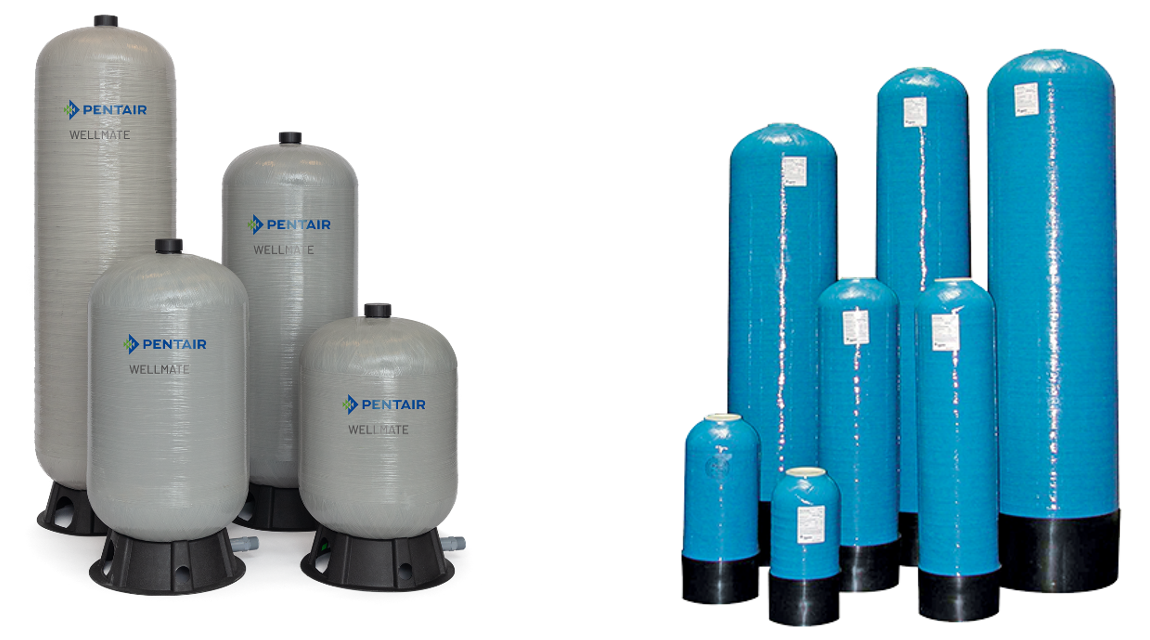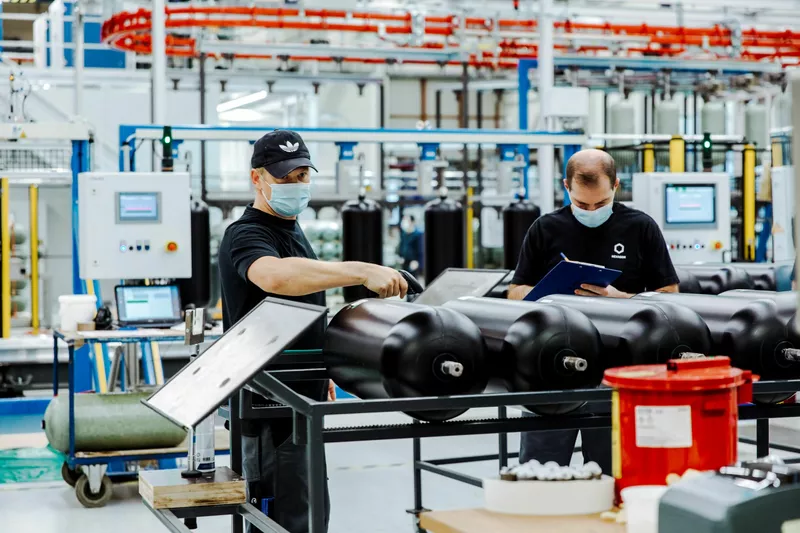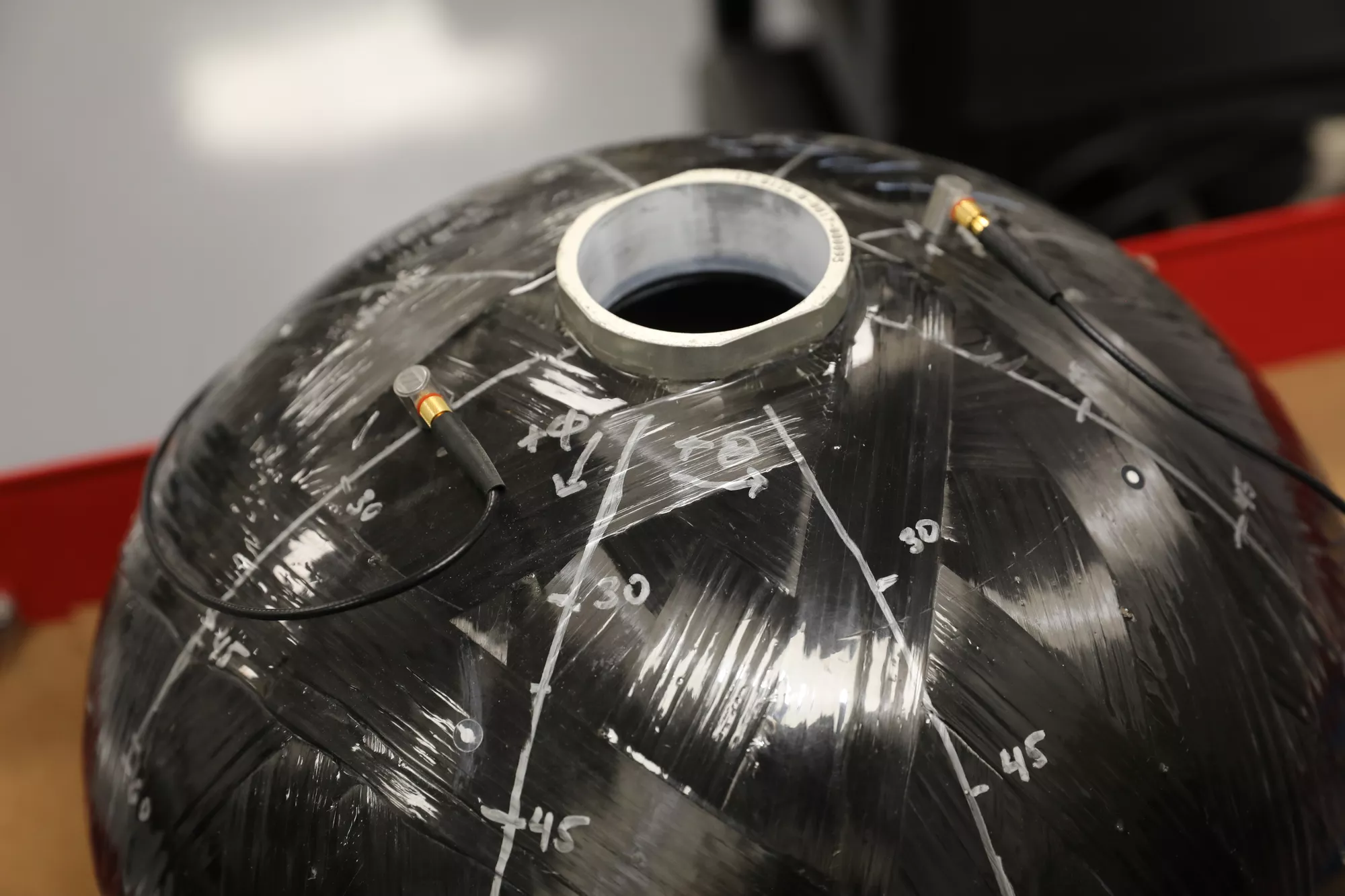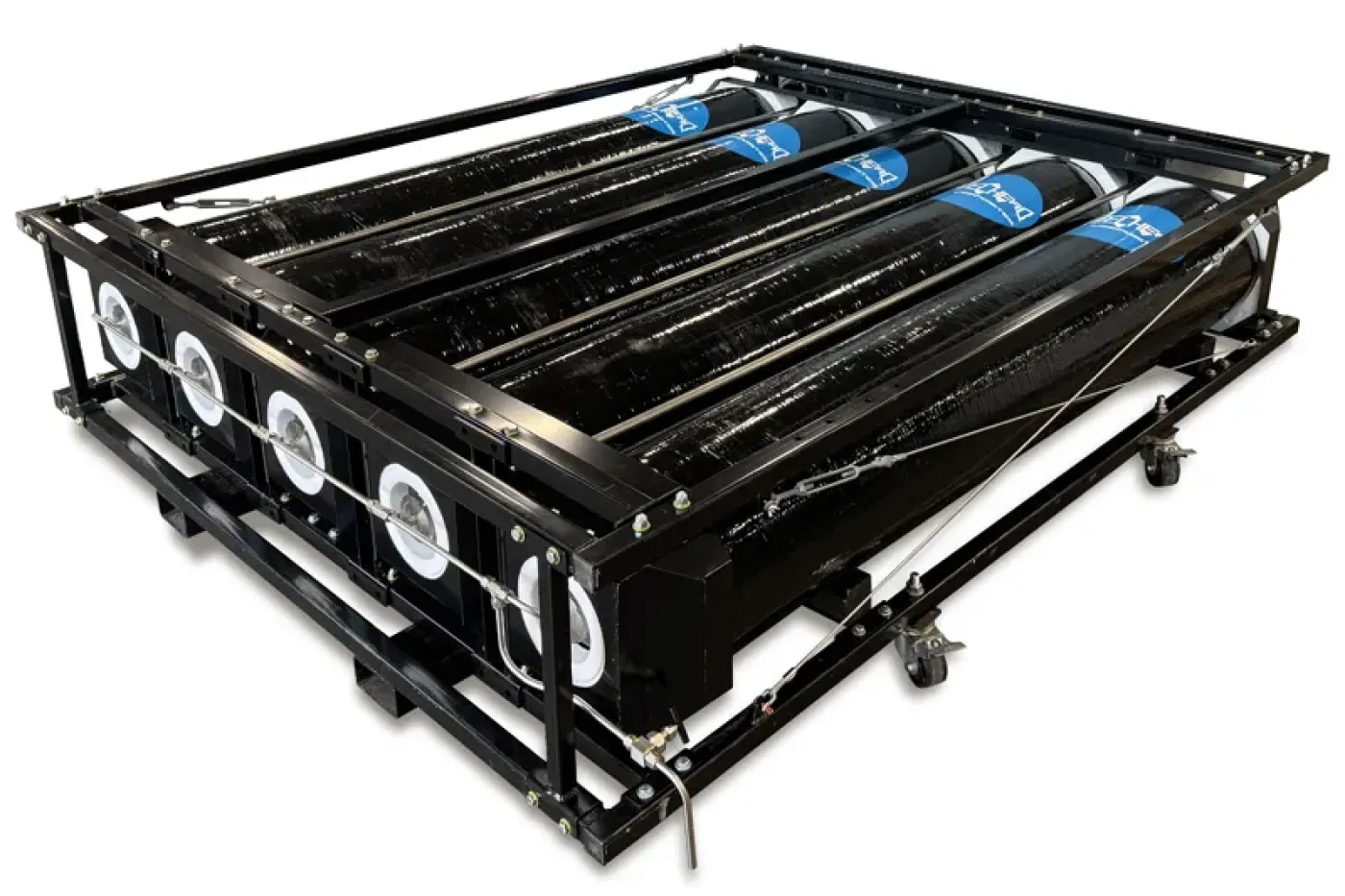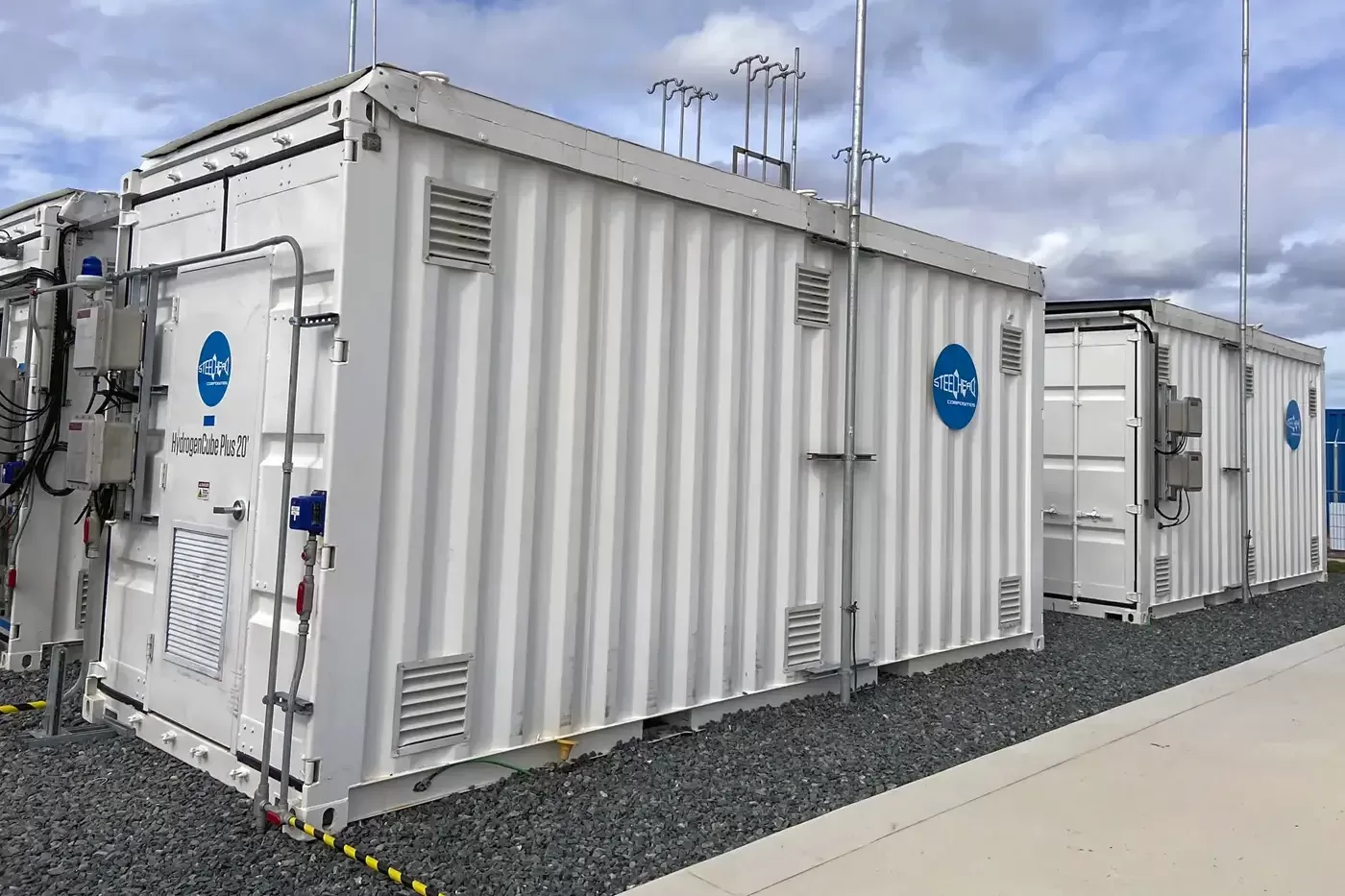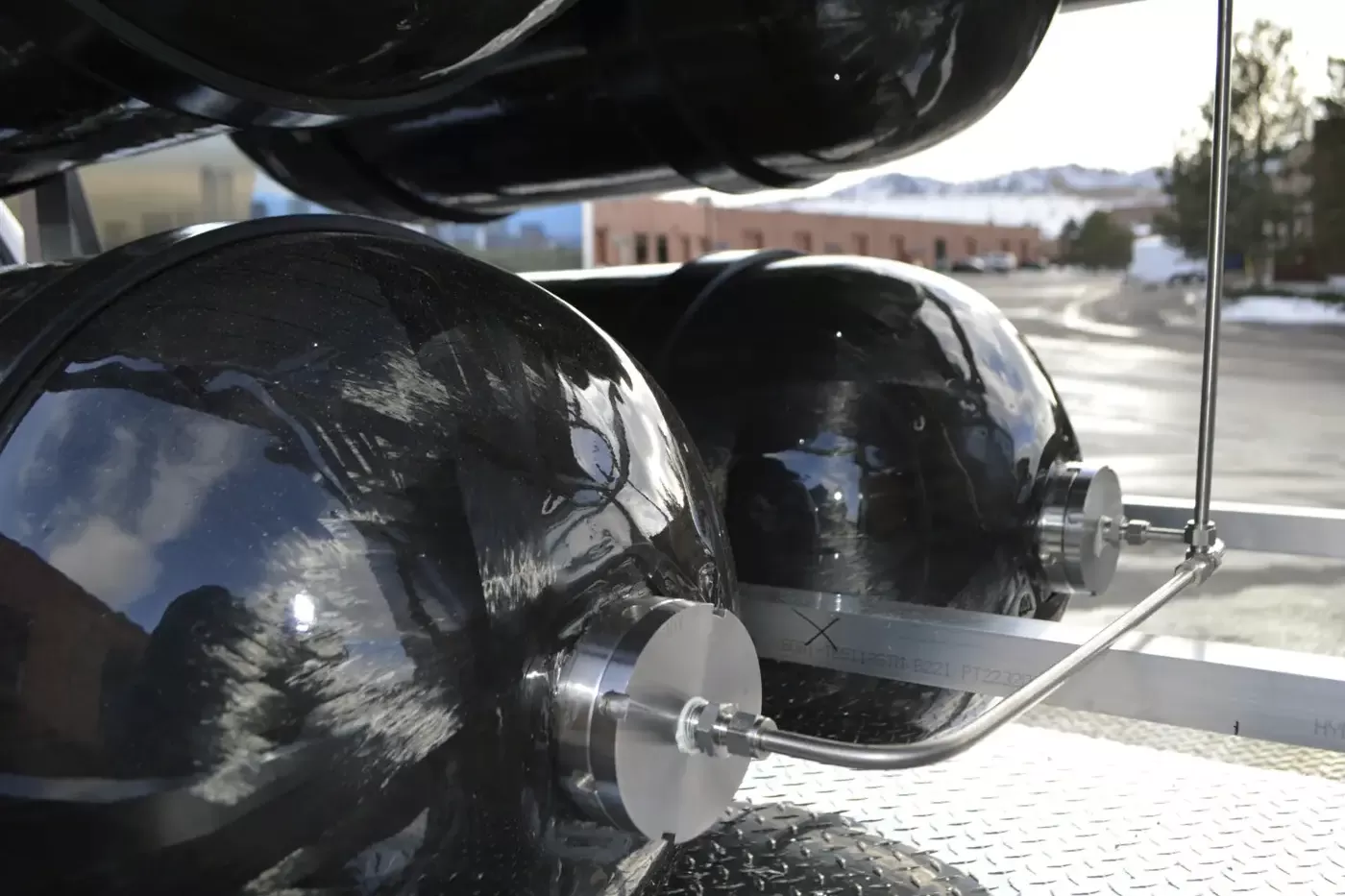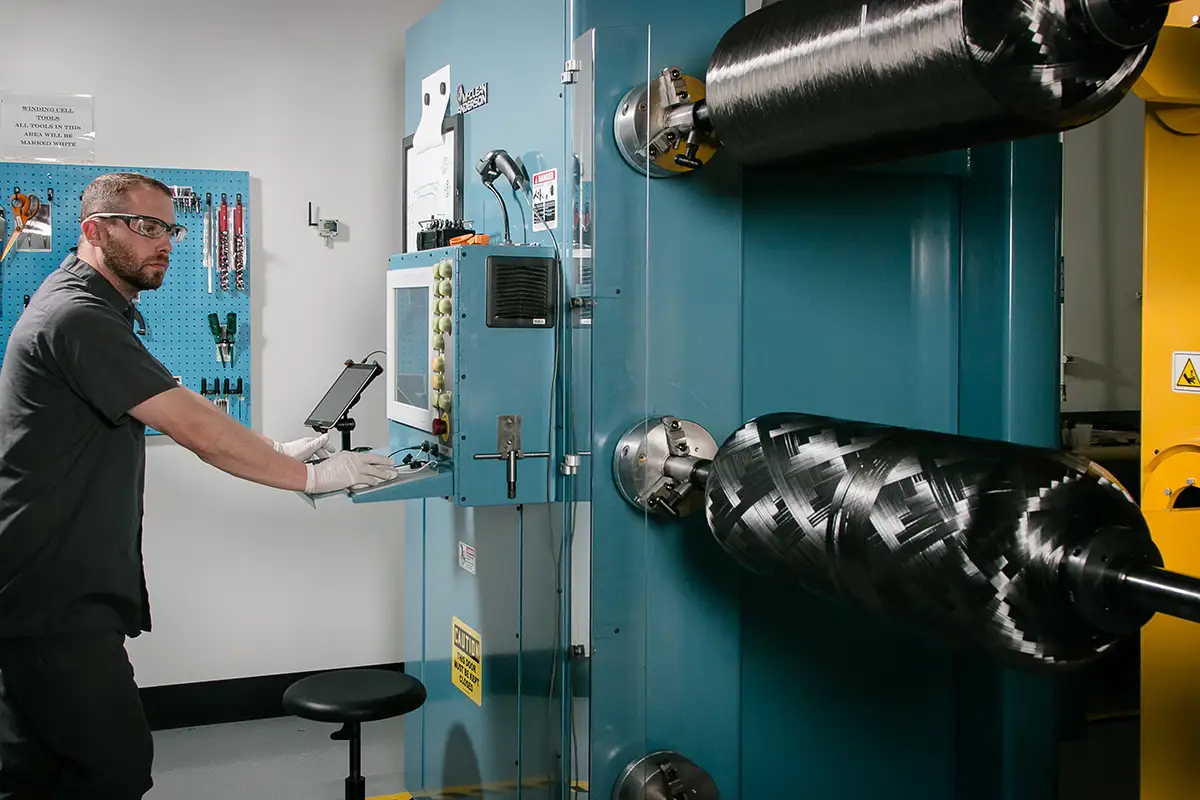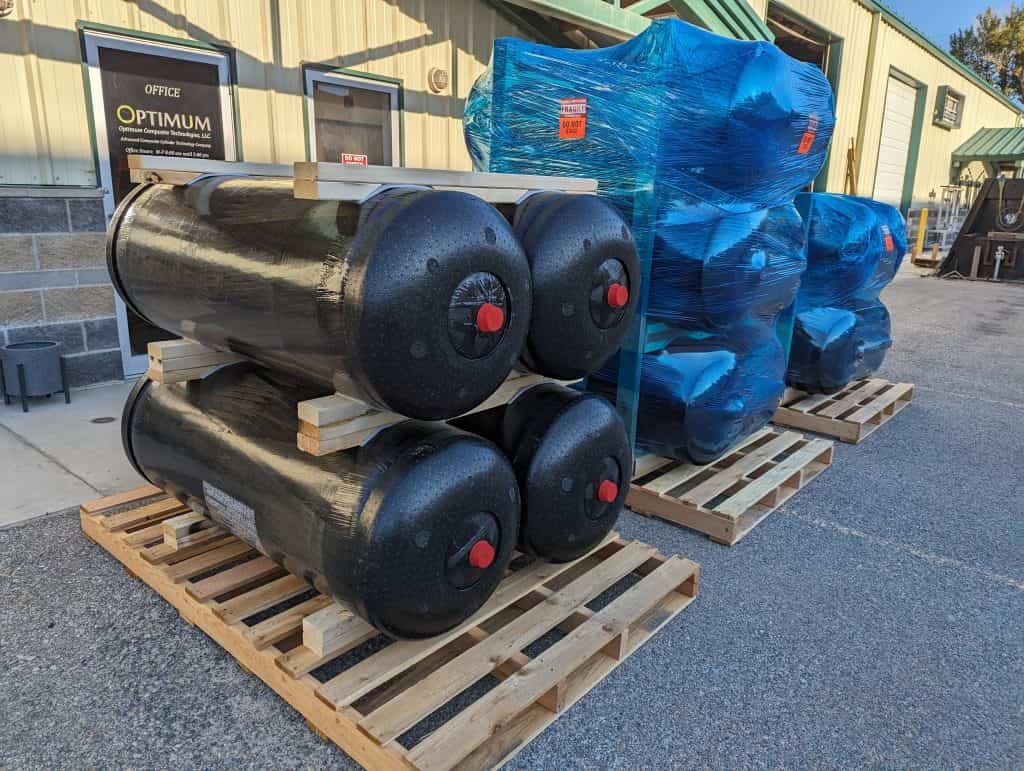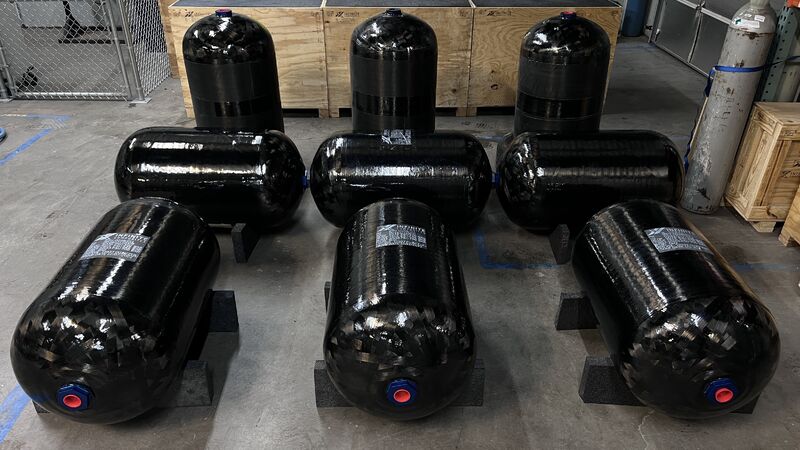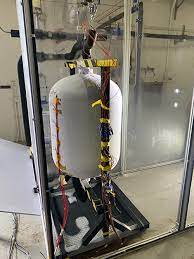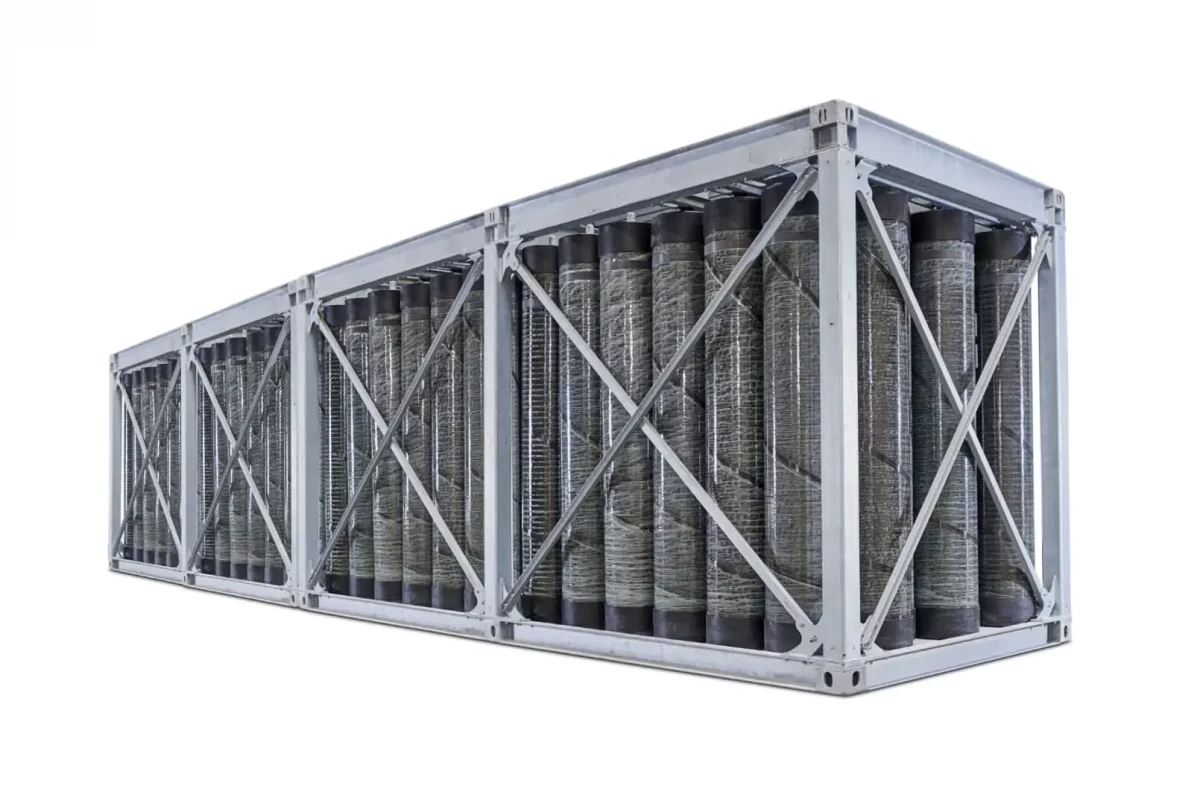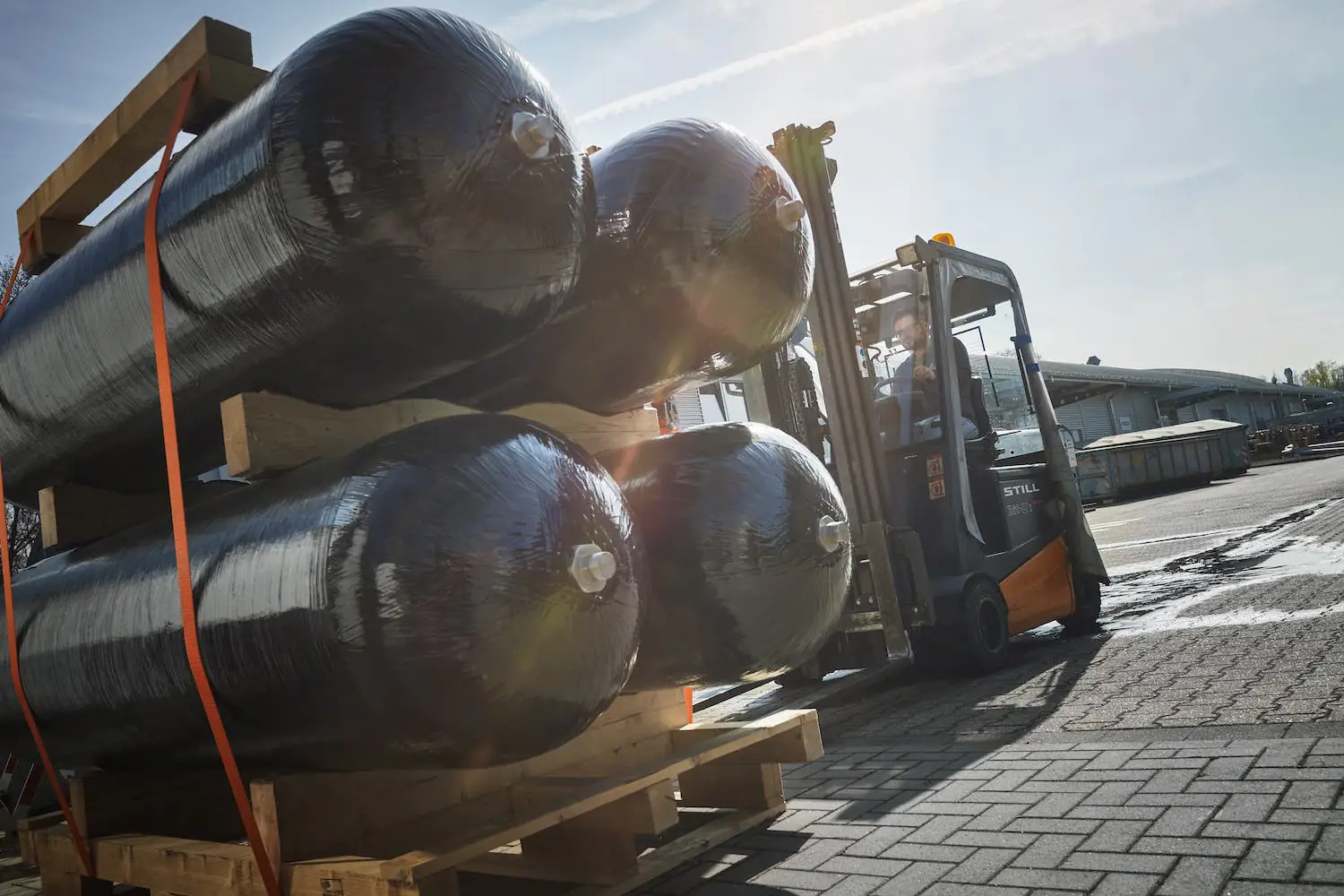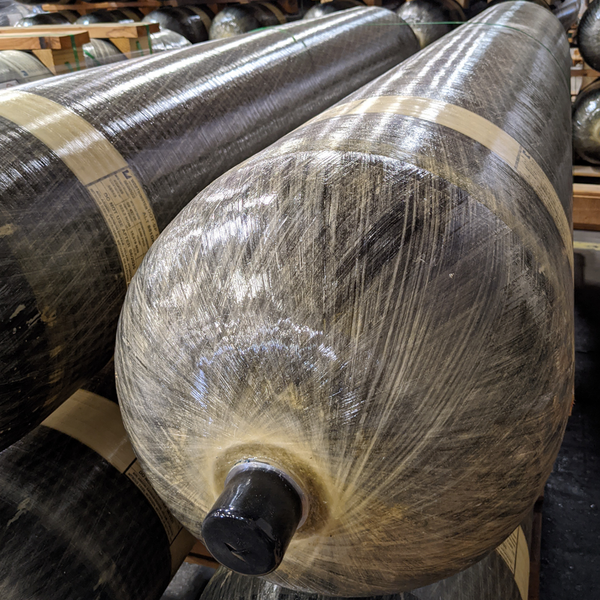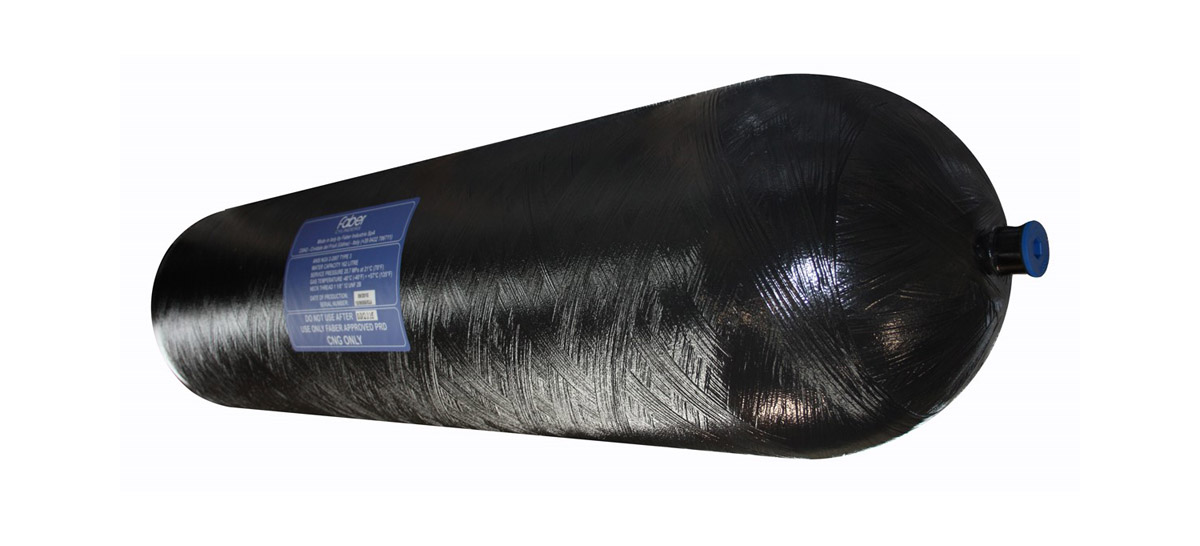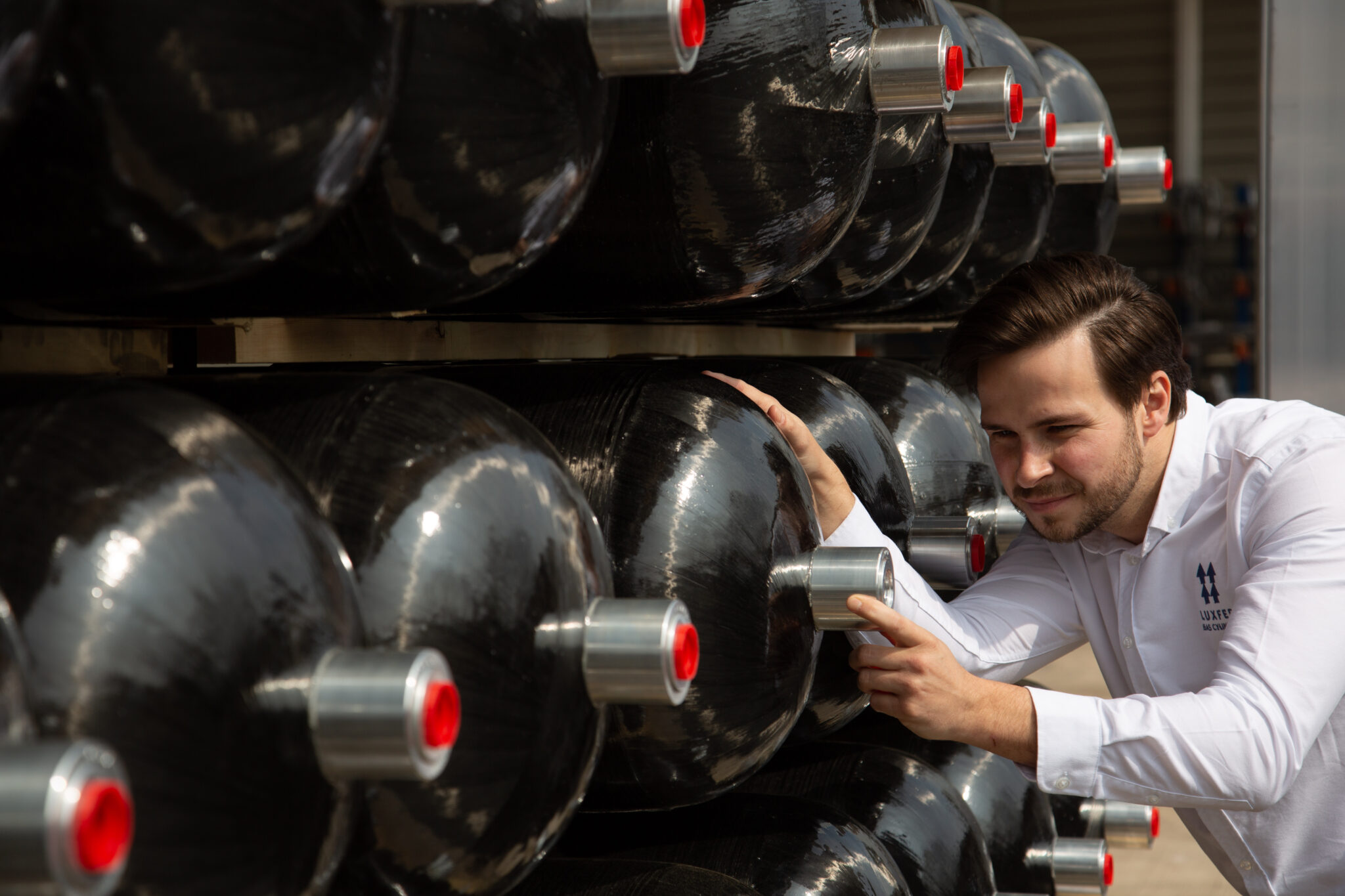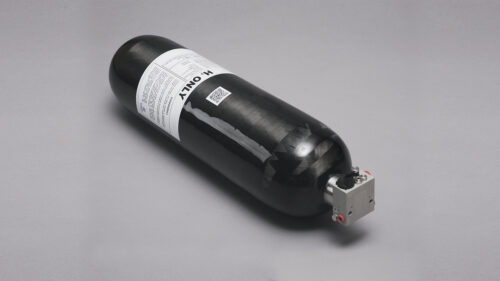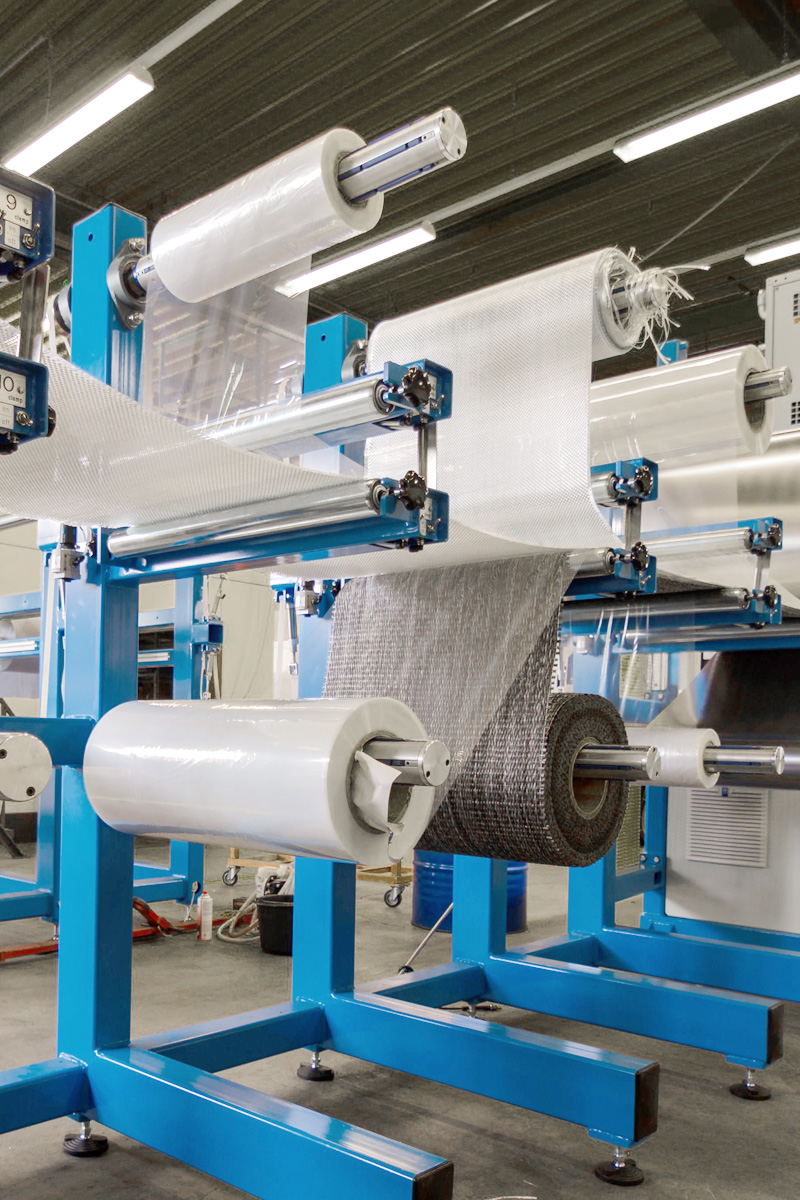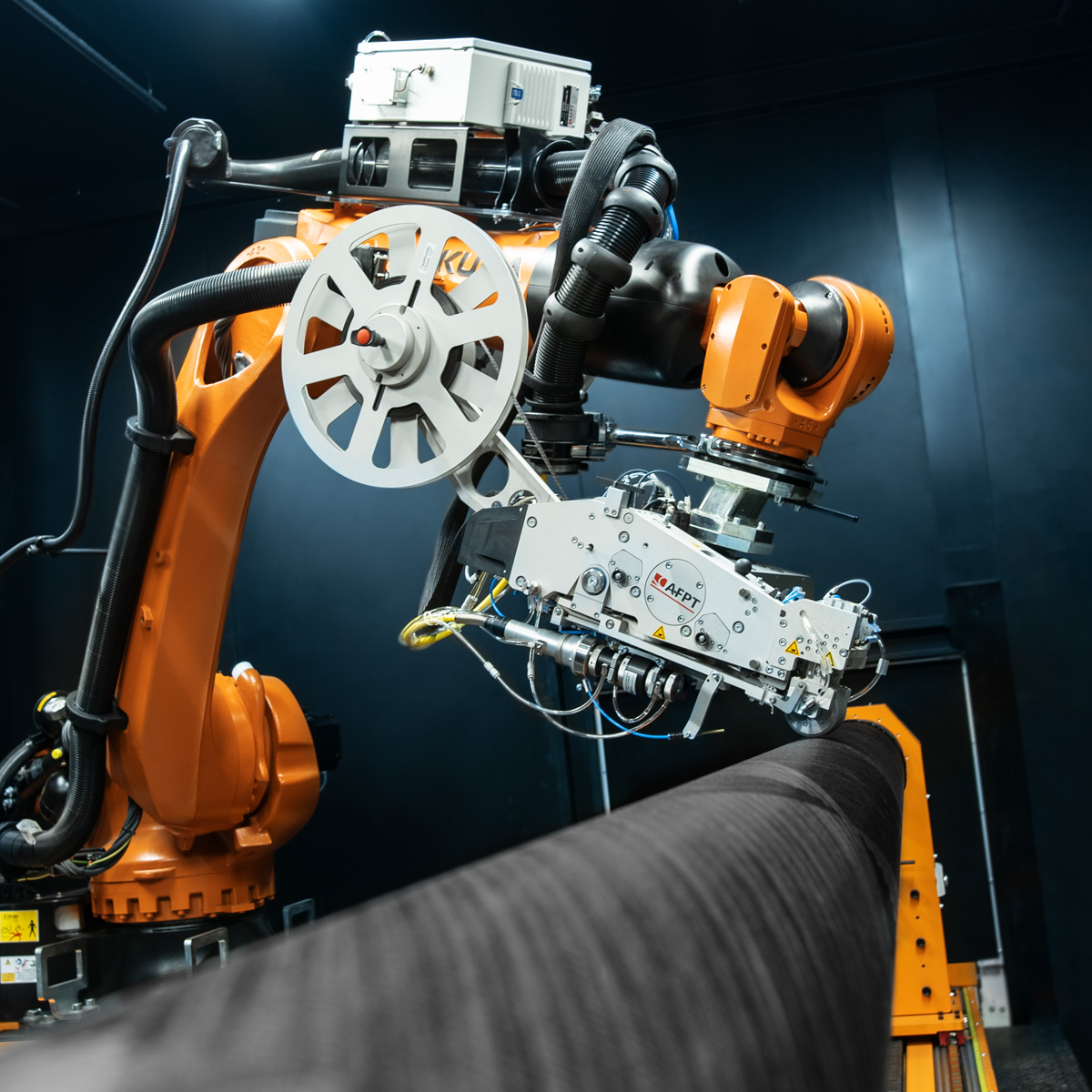Top 10 Composite Pressure Vessel Manufacturers In The World
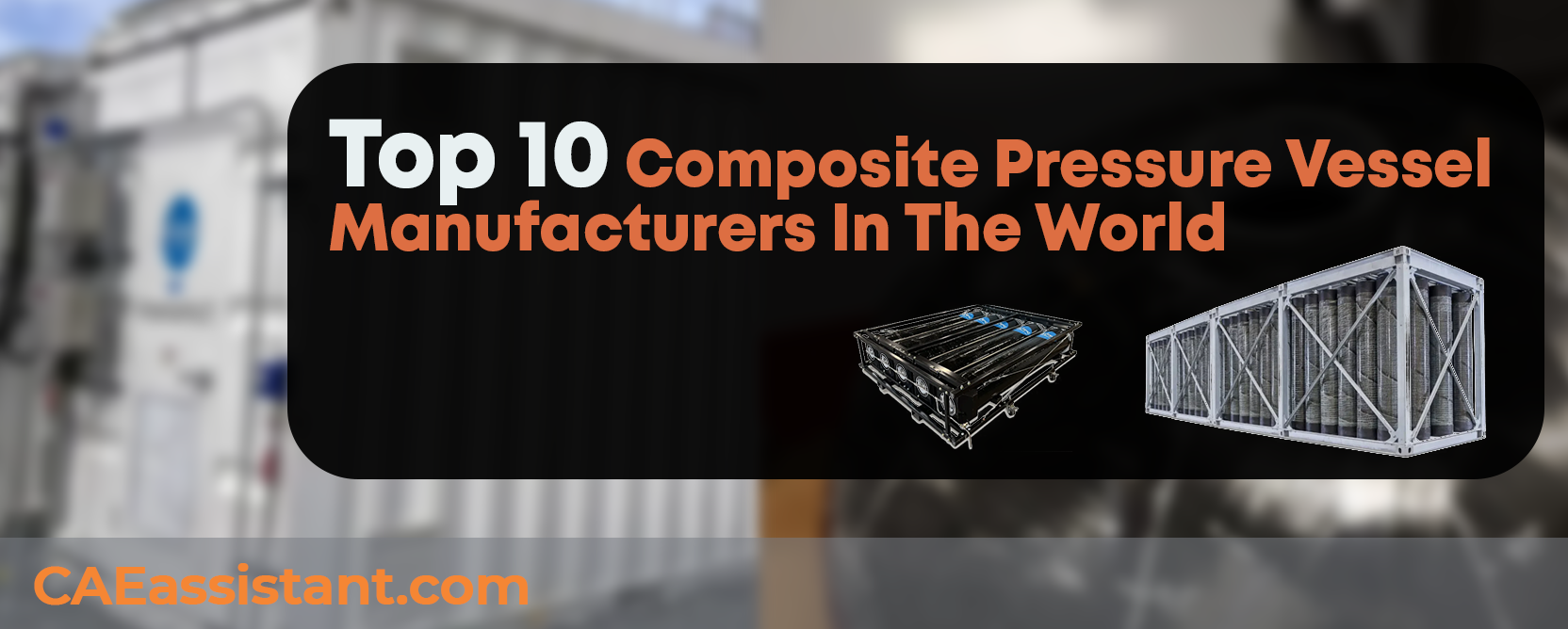
Composite Pressure Vessels (CPVs) are pivotal in the evolving landscape of hydrogen storage, alternative energy, and high-performance gas containment solutions. These vessels, constructed from advanced composite materials like carbon fiber-reinforced plastics, offer enhanced strength, durability, and reduced weight compared to traditional steel alternatives. As industries move toward greener energy solutions, CPVs are becoming essential in applications such as hydrogen storage, transportation, and refueling stations.
This article explores the top Composite Pressure Vessel Manufacturers in the CPV industry, each recognized for their innovative approaches to creating robust, reliable, and sustainable pressure vessels. These companies, including Worthington Industries, Faber Industrie, Luxfer Gas Cylinders, and AVANCO Composites, lead the charge in developing cutting-edge technologies and materials to meet the growing demands of hydrogen storage and transport. Their advancements not only support the global transition toward cleaner energy but also ensure safety, cost-effectiveness, and long-term reliability across various sectors.
Join us as we delve into the key players driving this critical segment of the Pressure vessel composite materials market, showcasing their contributions to the future of hydrogen storage and energy sustainability. (Composite pressure vessel manufacturers)
1. Pressure Vessel Composite Materials Market
- CPV Market Value
The global Pressure vessel composite materials market is expected to grow significantly. The market is currently valued at approximately $1.3 billion and is projected to reach over $3 billion by 2032, driven by increasing demand across automotive, aerospace, and industrial applications. The surge in clean energy initiatives, particularly hydrogen fuel storage, is a primary growth factor, especially in regions with strong sustainability agendas.
1.1. Key Market Segments
- Automotive & Transportation: Vehicles powered by natural gas and hydrogen fuel cells are major consumers of CPVs, especially with the growing shift towards zero-emission vehicles.
- Aerospace: Lightweight CPVs are essential for weight reduction, and critical in aerospace for fuel and high-pressure gas storage.
- Industrial: CPVs are extensively used in oil & gas, chemicals, and power generation industries due to their corrosion resistance, essential for safe and efficient gas and chemical storage.
The high-pressure segment of CPVs, driven by the need for advanced storage for high-pressure gases like hydrogen, is expected to see rapid growth in the coming years.
1.2. Top regions for CPV Investment
- For Investment: Asia-Pacific is experiencing high growth, with China, Japan, and India leading due to rapid industrialization, infrastructure expansion, and growing automotive sectors. This region is projected to have a 7.5% CAGR (Compound annual growth rate) through 2032.
- For Manufacturing and Buying: North America and Europe have established markets with a strong focus on aerospace, defense, and automotive industries, especially in the U.S., Germany, and the U.K., with steady demand due to stringent regulations and clean energy initiatives.
- Future of the CPV Industry
Advancements in material science and manufacturing technologies will likely enhance the performance of CPVs, making them stronger, lighter, and more durable. The push toward renewable energy is expected to further increase CPV demand, especially for hydrogen storage, as global investments in clean energy infrastructure continue to rise. Additionally, advancements in manufacturing, like automation, are anticipated to make CPV production more cost-effective, supporting market expansion.
2. Top 10 Composite Pressure Vessel Manufacturers
Considering that Composite pressure vessel manufacturers operate in different fields, it is difficult to introduce the best manufacturer, but the list below is the pioneers of composite pressure vessel production.
- Pentair
- Hexagon Industries
- Steelhead Composites
- CST Optimum
- Infinite Composites
- NPROXX
- Worthington Industries
- Faber Industrie
- Luxfer Gas Cylinders
- Avanco composites
In the following sections, we will briefly introduce these Composite pressure vessel manufacturers.
2.1. Pentair: Leading the Industry in Innovative Water Solutions
Pentair is one of the leading Composite pressure vessel manufacturers, offering a wide range of products designed for durability and efficiency, particularly in water treatment and filtration applications. These vessels are constructed with high-quality fiberglass and a polymeric base, providing excellent resistance to corrosion and impact—essential for long-term performance in demanding environments.
Figure 1: PENTAIR’s products [Ref]
Some key features of Pentair’s composite tanks include a seamless polyethylene inner shell that provides structural integrity and a continuous fiberglass outer layer, bound with epoxy resin, for added strength. Pentair’s Quick Connect Series, for instance, offers easy installation and versatility, and their tanks can handle various aggressive water chemicals, making them ideal for applications like hydropneumatic systems and water treatment.
In terms of design, the Pentair Comptec Tank line incorporates advanced aircell technology that compresses during operation to optimize water storage and flow, allowing for extended drawdown capabilities. This design aligns with Boyle’s Law, maximizing the available water in each cycle, which is essential in systems requiring efficient water usage and minimal maintenance.
2.2. Hexagon Industries: Driving Clean Energy with Advanced Composite Pressure Vessels
Another Composite pressure vessel manufacturers is Hexagon Composites. It is a global leader in Type 4 CPVs technology, producing innovative solutions to advance clean energy. Over the past 20 years, Hexagon has expanded its expertise from manufacturing cylinders to becoming a comprehensive fuel solutions provider, with specialties in the design, assembly, and installation of complete clean-fuel systems. This passion for Type 4 CPVs technology drives Hexagon’s mission to make clean energy accessible and feasible for all, demonstrating that technology can play a key role in creating a sustainable future.
With 40 years of experience in high-pressure composite technology, Hexagon Group is the world’s top producer of Type 4 composite cylinders for high-pressure gas storage. Their unmatched expertise and production capacity have established them as the industry’s largest and most experienced provider of composite cylinders, trusted globally for advanced gas storage solutions.
Figure 2: Hexagon’s experts [Ref]
At Hexagon, safety is the foundation of everything they design and manufacture. Each cylinder and system assembly is carefully engineered and undergoes stringent testing to meet safety standards that span local to international levels. With a focus on safety excellence, Hexagon ensures each product not only meets but often exceeds regulatory expectations, driven by a commitment to protecting users and the environment.
Leading advancements in testing technology, Hexagon supports customers worldwide with efficient, accurate cylinder inspection tools. Their solutions benefit organizations from government agencies to private companies, reducing downtime and inspection costs for industries that rely on high-pressure storage.
Furthermore, Hexagon’s innovations are transforming cylinder safety and longevity. This leap in technology enables extended service life, increased safety, and opportunities for cylinder reuse, supporting a sustainable approach to clean mobility.
Figure 3: Hexagon’s product under digital wave test [Ref]
2.3. Steelhead Composites: Precision Engineering for Lightweight and High-Strength Storage
The third of the Composite pressure vessel manufacturers is Steelhead Composites. It stands out as a premier global provider of advanced lightweight, high-pressure vessels and systems, dedicated to the safe and efficient storage and transport of compressed gases like hydrogen. Based in Golden, Colorado, this company focuses on supporting a sustainable energy future, designing solutions for various industries that depend on reliable, weight-sensitive fuel storage options. Steelhead’s range includes everything from individual Type III and Type IV pressure vessels to modular systems capable of safely storing large volumes of hydrogen, making them a key player in the growing clean energy market.
Figure 4: HydrogenCube Module Storage Systems [Ref]
Their achievements include developing the HydrogenCube™, an innovative containerized storage solution available in multiple configurations to meet customer needs. With features like smart thermal management and remote monitoring, the HydrogenCube™ addresses the demands of diverse applications, such as powering electric vehicle fleets. Steelhead’s Type III CNG cylinders, specifically designed for high-impact and frequent-use scenarios, further highlight their expertise in delivering durable, high-performance solutions tailored to customer specifications.
Figure 5: HydrogenCube Containerized Storage [Ref]
In 2017, the company expanded into markets such as compressed natural gas and hydrogen storage for fuel cell vehicles, leveraging advanced digital manufacturing capabilities. As demand for hydrogen storage continues to grow, Steelhead is well-positioned to lead with its versatile, scalable solutions aimed at supporting cleaner, more efficient energy storage across industries.
Figure 6: HydrogenCube Module Storage Systems [Ref]
Steelhead Composites redefines composite manufacturing by blending advanced material expertise with innovative engineering. Their capabilities extend far beyond typical production methods, showcasing mastery in filament winding, complex structural composites, and advanced curing techniques. Steelhead’s skilled team is dedicated to transforming ambitious designs into high-performance, precision-crafted products.
A hallmark of their process includes Vacuum Assisted Resin Transfer Molding (VARTM) and refined hand layup methods, ensuring structural integrity and quality for complex composite components. Additionally, their out-of-autoclave composite processing enhances efficiency while maintaining high standards.
Central to their operations is a state-of-the-art curing oven. This advanced equipment includes a built-in rotation feature, ensuring even curing for composite pressure vessels, a testament to Steelhead’s commitment to excellence in every detail.
Figure 7: Steelhead’s Composite Manufacturing capacity [Ref]
2.4. CST Optimum: Delivering Customizable Composite Solutions for Diverse Industries
Another Composite pressure vessel manufacturers is CST Optimum. It is a global leader in the production of certified composite overwrapped pressure vessels (COPVs), is accelerating the transition to green hydrogen in the USA, Australia, and beyond. Specializing in lightweight, high-strength COPVs, CST Optimum offers solutions tailored for the energy, transport, aerospace, and defense industries, ensuring the safe and efficient storage and transport of hydrogen and other gases essential to reducing carbon emissions in sectors like steel, cement, and aviation.
This international joint venture unites Australia’s CST Composites and the USA’s Optimum Composite Technologies. CST Composites, with over 25 years in filament winding and carbon fiber production, serves markets worldwide and is recognized for its innovative manufacturing techniques. Optimum Composite Technologies brings additional expertise in automotive, aerospace, and infrastructure, further strengthening the company’s offerings in high-performance storage solutions.
With robust R&D and manufacturing capabilities, CST Optimum provides custom-designed COPVs that meet exacting industry standards, supporting green hydrogen adoption as a vital part of the transition to a sustainable global economy. This commitment to quality and sustainability ensures CST Optimum remains a go-to provider for industries in need of safe, cost-effective composite solutions.
Figure 8: CST Optimum products [Ref]
2.5. Infinite Composites: Pioneering Next-Generation Composite Pressure Vessels
The fifth of the Composite pressure vessel manufacturers is Infinite Composites (IC). It has carved out a strong presence in high-efficiency composite pressure vessels (CPVs) for critical markets like aerospace, defense, vehicular transportation, and bulk gas transport. IC’s composite pressure vessels are engineered to optimize payload capacity and reduce transportation costs, providing a highly efficient solution for pressurized storage and transport of liquids and gases. Founded in 2010, IC introduced its groundbreaking linerless Infinite Composite Pressure Vessel (iCPV) in 2013, revolutionizing storage technology by eliminating the need for traditional liners, which makes their vessels lighter and maximizes storage efficiency.
The Infinite Composites team is composed of innovative experts who continuously push CPV technology to new heights, particularly with the iCPV, which simplifies storage without sacrificing durability or capacity. Traditional pressure vessels often rely on metal or plastic liners that can fail or add unnecessary weight; in contrast, IC’s all-composite design improves burst pressure and cycle life. This linerless structure, also known as a Type V tank, optimizes the efficiency of CPVs, measured by their burst pressure, volume, and weight, outperforming traditional composite-overwrapped pressure vessels (COPVs).
Figure 9: Infinitive Composite CPV [Ref]
IC’s iCPV tanks are designed to be highly versatile, customizable for a wide range of applications, and compatible with hazardous materials. Using proprietary manufacturing techniques, IC can tailor the iCPV’s interior materials to withstand corrosive or fatigued-prone chemicals and gases, broadening their utility in harsh environments. As a result, these tanks are ideal for weight-sensitive applications, including space missions and defense systems, where reducing unnecessary mass is crucial for performance and fuel economy.
In addition to production, Infinite Composites offers comprehensive testing services, including material analysis, non-destructive testing, and hydrostatic proof and burst testing, ensuring that each CPV meets stringent requirements. This dedication to testing and customization makes Infinite Composites a leader in advanced storage solutions, particularly suited for demanding sectors requiring high performance, purity, and safety in fuel storage and transport.
Figure 10: Infinitive Composite’s CPV under test [Ref]
2.6. NPROXX: Advancing Hydrogen Storage for a Sustainable Future
The next Composite pressure vessel manufacturers is NPROXX. It stands as a world leader in high-pressure hydrogen storage technology, offering advanced composite pressure vessels (COPVs) that are pivotal to the growing hydrogen economy. The company’s Type 4 pressure vessels are crafted from carbon fiber-reinforced plastic (CFRP), a material that provides a superior strength-to-weight ratio, resulting in vessels that are significantly lighter—up to 450 kg lighter than traditional systems. This weight reduction enhances fuel efficiency and increases the range of hydrogen-powered vehicles, making these vessels ideal for applications across various sectors, including transportation, refueling infrastructure, and stationary hydrogen storage.
NPROXX’s high-pressure storage solutions cater to a broad range of applications, spanning hydrogen-powered rail vehicles, buses, trucks, cars, and even hydrogen transportation infrastructure. In the automotive industry, these lightweight vessels play a crucial role in hydrogen-powered vehicles, where minimizing weight is essential for fuel efficiency and performance. NPROXX vessels are also tailored for use in stationary applications, such as hydrogen refueling stations, which are essential to the ongoing shift toward green hydrogen fuel across industries like aerospace, energy, and heavy industry.
Figure 11: NPROXX’s Stationary Hydrogen Storage [Ref]
NPROXX emphasizes safety as a top priority. Each vessel adheres to rigorous international standards, including UNECER134 and ISO11515, ensuring they withstand the high pressures involved in hydrogen storage while resisting hydrogen embrittlement and fatigue over time. The company’s commitment to safety has earned its trust among leading industrial partners, particularly in the automotive and heavy-transportation industries, where reliability is paramount.
One of NPROXX’s latest innovations is the AH620-70, a 700-bar hydrogen storage vessel engineered specifically for heavy-duty and long-haul vehicles. This advanced pressure vessel, capable of storing 12.4 kilograms of hydrogen, is designed to meet the high demands of commercial transport applications, supporting the shift to zero-emission vehicles in the transportation sector. This new product is part of a flexible design platform that will enable the development of additional hydrogen storage solutions with customized lengths and capacities, further extending NPROXX’s impact on the hydrogen-powered transportation industry.
In addition to its cutting-edge products, NPROXX maintains an onsite materials testing lab, allowing the company to continuously improve its pressure vessel technologies. This lab supports innovation in materials and testing, ensuring that NPROXX’s products remain at the forefront of hydrogen storage technology. With decades of experience in carbon fiber technology and composite manufacturing, NPROXX combines technical expertise in design, engineering, and large-scale production to deliver high-quality, durable, and efficient hydrogen storage solutions to its customers across the globe.
As the demand for hydrogen storage solutions continues to grow, NPROXX’s focus on sustainable and innovative technology positions it as a key player in the transition to clean energy. Their CFRP-based pressure vessels are not only strong and lightweight but also resistant to chemical degradation and thermal expansion, making them suitable for a variety of challenging environments. With a proactive approach to R&D and a commitment to safety, NPROXX sets a benchmark for quality and innovation in the hydrogen storage market, helping to drive the adoption of hydrogen as a clean fuel source for a more sustainable future.
Figure 12: NPROXX products [Ref]
2.7. Worthington Industries: Reliable Pressure Vessels Built for Versatile Applications
Worthington Industries is another of the Composite pressure vessel manufacturers. It ia a prominent global manufacturer known for its cutting-edge composite pressure vessels (CPVs), tailored primarily for hydrogen storage and transport applications. Their CPVs, developed under the “ThermaGuard” line, incorporate advanced aerospace-grade composites. These materials provide a higher temperature tolerance, making them ideal for hydrogen storage by eliminating the need for hydrogen pre-chilling, which traditionally requires costly equipment. This innovation speeds up the filling process, allowing vehicles equipped with ThermaGuard tanks to refuel in a fraction of the typical time, resulting in significant operational savings and enhanced efficiency.
Worthington’s commitment to advancing sustainable energy solutions is evident through their investment in technology that supports hydrogen-powered mobility. The company emphasizes cost-effectiveness and durability, providing CPVs that meet stringent safety standards. Their manufacturing process leverages high-quality composite materials and innovative design principles to ensure the long-term reliability of their pressure vessels, which are well-suited for heavy-duty applications like buses and trucks. This focus aligns with Worthington’s broader goal of driving the clean energy transition.
Headquartered in the U.S., Worthington has expanded its operations globally, with a significant presence in Europe. Their Sustainable Energy Solutions segment operates across several countries, including Austria, Germany, and Poland, allowing Worthington to meet diverse industry needs in various markets. This division focuses on providing efficient gas containment solutions and advancing alternative energy technologies, reflecting Worthington’s proactive approach toward sustainability and leadership in the hydrogen ecosystem.
Through continuous innovation, Worthington positions itself as a key partner in the growing hydrogen fuel market. Their commitment to quality is backed by numerous certifications, and their product portfolio caters to the unique requirements of both light and heavy hydrogen-powered vehicles. Worthington’s composite tanks offer significant benefits in fuel economy, reduced maintenance, and expanded applications, underlining their role in supporting the global shift to cleaner, renewable energy sources.
Figure 13: Worthington ThermaGuard CPV [Ref]
2.8. Faber Industrie: A Global Leader in High-Pressure Cylinder Technology
Faber Industrie, another Composite pressure vessel manufacturers established in 1969, is a global leader in high-pressure gas cylinder manufacturing, offering an extensive product range that includes Types 1, 2, 3, and 4 cylinders. Known for its high standards and reliability, Faber’s product portfolio covers a wide range of storage solutions for high-pressure gases, with cylinders featuring capacities from 1 to 800 liters. Its facilities in Italy, boasting an impressive production capability of approximately one million cylinders per year. This scale, combined with Faber’s commitment to quality and flexibility, has established the company as a major global supplier.
Over the years, Faber has expanded its expertise in composite pressure vessel (CPV) technology. The development of Type 4 cylinders, which feature a plastic liner reinforced with carbon fiber, represents a key innovation. By adding glass fiber for additional durability, Faber has improved the strength and longevity of these cylinders, making them suitable for hydrogen storage applications that require high-pressure tolerance. These advanced CPVs are well-suited for hydrogen storage, transport, refueling stations, and onboard vehicle applications.
Faber also designs integrated gas storage systems such as racks for vehicles, gas bundles, and multi-element gas containers (MEGCs) for trailers. These systems support various fields, including energy, transportation, and industrial applications, and showcase Faber’s comprehensive capabilities in CPV manufacturing and application-specific customization.
Figure 14: Faber product for CNG storage [Ref]
2.9. Luxfer Gas Cylinders: Safety and Innovation in High-Pressure Gas Storage
Headquartered in Riverside, California, with facilities across North America, Europe, and Asia, Luxfer is well-positioned as a global leader in composite pressure vessel manufacturers and the CPV technology.
Luxfer Gas Cylinders, a key player in the development of high-pressure composite gas containment solutions, is dedicated to advancing environmental responsibility and enhancing safety across a range of industries. With over 70 million cylinders in use worldwide, Luxfer’s products are widely trusted in fields such as alternative fuels, medical applications, SCBA, aerospace, and fire safety. Their lightweight, high-strength composite and aluminum cylinders support applications where dependability and performance are critical.
Luxfer’s innovation in hydrogen storage leads the way in high-pressure storage solutions aimed at reducing emissions and supporting green energy transitions.
Additionally, Luxfer has demonstrated its leadership with cutting-edge projects, including innovations for cleaner fuel in the logistics industry and a commitment to advancing hydrogen use in public transportation.
Figure 15: Luxfer products [Ref]
The company serves as a global supplier of alternative fuel cylinders, offering alternative fuel vehicle systems across Europe, APAC, and the Middle East to support all major forms of transportation. High-quality composite pressure vessels are available for diverse applications, including buses, trucks, trains, forklifts, boats, and aviation—contributing to the broader adoption of cleaner energy across multiple sectors.
Beyond vehicle-based systems, the company also provides gas distribution solutions through virtual pipeline systems in Europe, APAC, and the Middle East, ensuring versatile and dependable storage and transportation for compressed gases. This commitment to efficient and adaptable alternative fuel solutions allows the company to support clients seeking sustainable, high-performance fuel storage systems. For operations of all kinds, the company’s expertise and advanced CPV technology provide reliable, innovative solutions to keep industries moving forward.
Figure 16: Luxfer product [Ref]
2.10. Avanco Composites: head of pressure vessel composite materials market
The last of the Composite pressure vessel manufacturers in our list is AVANCO Composites. It has solidified its position as a leader in producing lightweight composite materials, excelling in carbon fiber-reinforced plastics (CFRP) and glass fiber products that cater to a diverse range of industries. With over 40 years in the lightweight materials sector, AVANCO’s expertise spans the full lifecycle of composite product development, from initial concept and simulation to advanced manufacturing. Their materials are engineered to deliver optimal weight, strength, and thermal stability, which are essential for applications that demand both performance and durability.
AVANCO stands out with its high vertical integration and commitment to quality, supported by an agile, skilled team dedicated to developing innovative, sustainable solutions. Their expertise in fiber-reinforced plastics and lightweight metals allows them to quickly adapt to unique customer needs across markets, including aerospace, automotive, and energy storage. This adaptability, coupled with their knowledge in simulation, production, and material processing, makes them a reliable partner for high-stakes projects requiring top performance and precision.
Figure 17: AVANCO fully automated series production [Ref]
A key technology that AVANCO employs is laser-assisted thermoplastic tape winding, a robot-based process using Automated Fiber Placement (AFP). This process enables AVANCO to place thermoplastic tapes with in-situ consolidation on complex structures, enhancing durability and reducing the need for additional production steps like autoclave curing. The technique not only ensures high-quality control but also optimizes the orientation and mechanical properties of each layer. This advanced approach is ideal for fabricating high-strength composite pressure vessels efficiently, meeting rigorous demands for both technical and economic viability.
Figure 18: AVANCO AFP technology [Ref]
With the push towards green hydrogen as a sustainable fuel, AVANCO’s CFRP pressure vessels are particularly valuable. These vessels, created from thermoplastic UD-tapes, allow for high-pressure hydrogen storage, aligning with the industry’s growing need for robust, recyclable storage solutions. AVANCO’s thermoplastic pressure vessels (TPPVs) offer enhanced refueling capabilities, reduced weight, and recyclability, presenting a promising alternative to traditional pressure vessels. Their innovations in tape winding and thermoplastic materials underscore AVANCO’s commitment to supporting the transition toward sustainable energy solutions.
Figure 19: Using AVANCO composite for winding pressure vessel [Ref]
3. Conclusion
This article provided an in-depth look at some of the leading global Composite pressure vessel manufacturers, essential for storing and transporting hydrogen and other high-pressure gases. As industries move toward sustainable energy solutions, the role of these CPVs has become increasingly important, offering both safety and efficiency in clean fuel applications.
The article began by discussing major players in the CPV market, such as Hexagon Composites, NPROXX, and CST Optimum, each known for their specialized innovations, like lightweight tanks, versatile storage systems, and high-volume production capacities tailored for various sectors including automotive and transportation. The article then reviewed additional companies, including Worthington Industries with their ThermaGuard line, Faber Industrie’s broad range of high-pressure cylinders, Luxfer Gas Cylinders’ lightweight solutions, and AVANCO Composites’ advanced materials. Each section highlighted the unique contributions of these manufacturers, from improving fuel efficiency to supporting refueling infrastructure for hydrogen-powered vehicles.
In summary, this article provided an overview of the top CPV manufacturers and their technologies, demonstrating how each company is innovating to support the shift toward clean energy through durable, efficient, and advanced storage solutions.
The CAE Assistant is committed to addressing all your CAE needs, and your feedback greatly assists us in achieving this goal. If you have any questions or encounter complications, please feel free to share it with us through our social media accounts including WhatsApp.
Explore the intricacies of Composite Pressure Vessel Design in our latest article, where we delve into various filament winding techniques—planar, geodesic, and isotensoid—and their applications. Gain insights into simulating these advanced structures using Abaqus software, enhancing your engineering projects with cutting-edge methodologies.

